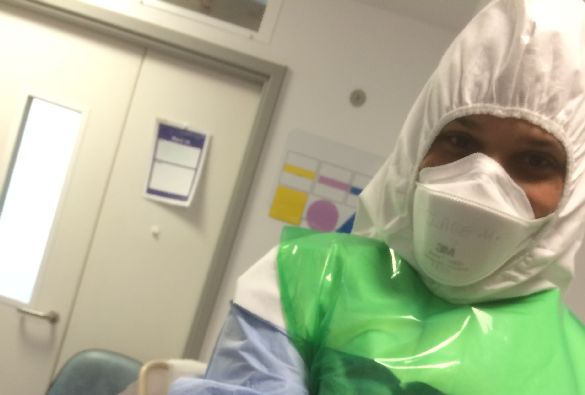
As another UK healthcare worker is confirmed as being Ebola positive, scientists at the University of Liverpool’s Institute of Infection and Global Health have been examining the factors which govern whether or not people will sign up to help tackle Ebola in West Africa.
Scientists found that, surprisingly, fear of getting infected with the virus is not the main factor holding people back, but a lack of authoritative information on how to volunteer, what skills are needed and what roles are required.
The study suggests there is a need for a single source of information about volunteering in West Africa in order to encourage more UK healthcare workers to provide aid in the Ebola virus outbreak.
The team developed a survey, aimed at UK healthcare workers, to identify barriers that were preventing people volunteering to work in the Ebola affected region. For those healthcare workers that responded as not being able to volunteer, they were most likely to state family commitments, such as childcare, as a reason. People who were considering going but had yet to volunteer were younger professionals who were less likely to have children.
Sister Claire Matata, who is a research nurse from the University, currently working in Sierra Leone, said: “Because I am working on a research study, it was quite easy for me to get all the information I needed, and get out here to support the team effort. But I know others have been surprised by the lack of clear information on how to help in the effort to tackle this disease.”
Future emergencies
Even though the outbreak appears to be coming under control, more volunteers are still needed. The team’s findings also have implications for the recruitment of skilled staff to future health emergencies.
Dr Lance Turtle, from the University’s Institute of Infection and Global Health, said: “Many more skilled healthcare workers are needed to help deliver frontline care, keep the Ebola virus disease victims isolated, and bring the largest outbreak of the virus that the world has ever seen under control.
“Our findings suggest that there is a need for a single source of information on volunteering in West Africa to increase the numbers of people helping to tackle the Ebola crisis. This resource should be widely publicised and include information on how to volunteer and what to expect from the experience.”
The survey was conducted as part of the National Institute for Health Research (NIHR) Health Protection Research Unit (HPRU) in Emerging Infections and Zoonoses, a collaboration between the University of Liverpool, Liverpool School of Tropical Medicine and Public Health England.
The research is published in PLOS ONE.
To learn about the first-hand experience of Liverpool PhD student, Andrew Bosworth, who provided support to healthcare workers trying to contain the virus in West Africa, please visit: //news.liverpool.ac.uk/2014/08/07/phd-student-works-on-ebola-frontline-2/
